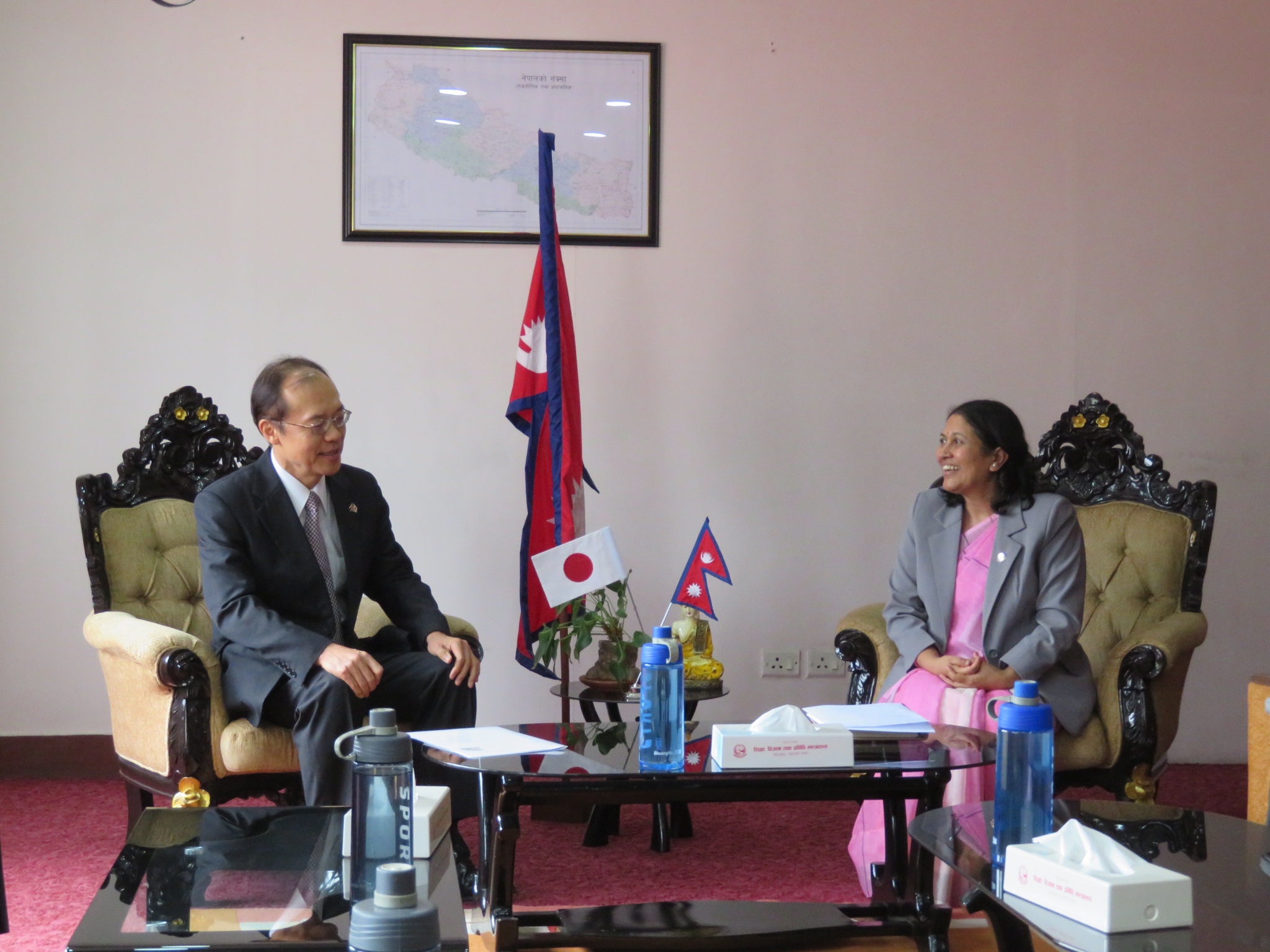
OR
Voluntary retirement scheme a burden: Experts
Published On: January 15, 2018 08:35 AM NPT By: Republica | @RepublicaNepal
KATHMANDU, Jan 15: In what has been described as the first serious attempt to overhaul the ailing bureaucracy, the government has issued a decree urging public servants on the brink of retirement to seek voluntary departure if they wish not to be integrated in the new federal setup.
In a notice published in Nepal Gazette on January 12, the Ministry of General Administration (MoGA) has asked public servants of above fifty years to decide whether they want to continue the service or retire with a handsome incentive.
The proposed incentive for employees seeking voluntary retirement includes a lump sum amount worth seven years of pension. These employees would also be entitled to the usual post-retirement perks and benefits in accordance with the law.
Even as MoGA officials who drafted the scheme claim that such an offer would help to reduce the financial burden and infuse fresh blood in the ailing bureaucracy, independent experts on the matter have said that the scheme will not only incur a massive financial burden but also wreak havoc in the public service which is in transition.
Former chief commissioner of the Commission for the Investigation of Abuse of Authority (CIAA) Surya Nath Upadhyay said that despite good intentions, the timing and scale of the planned retirement will bring a serious gap in the bureaucracy.
“At a time when the whole public administration is going to be restructured in line with the new federal setup, the government is all set to get rid of its experienced manpower through a voluntary retirement plan and that also with a hefty reward. This may create a vacuum in the public service which is in transition,” he said, adding that the government should have been able to mobilize all the civil servants.
“Government employees should go wherever the government sends them. If they don’t want to go, they can resign. But unfortunately, our government is rewarding them,” he added.
Similarly, Nepali ambassador to China and former Chief Secretary Leela Mani Paudyal has vented his ire against the government’s voluntary retirement scheme on Twitter. “Is there any rationale behind giving huge additional perks to government employees in administrative federalization? (Govt) Must’ve used them in federal bodies until they retire. Then only the new recruitment should have been allowed. The costs of new structures would costs billions. How can the economy sustain?” he tweeted.
Replying to Paudyal’s tweet, Bishow Parajuli tweeted, “Additionally, there also could be concern about civil capacity if many experienced staff to leave!”
Pradyumna Upadhyay, an under-secretary at the Office of Prime Minister and Council of Ministers also tweeted saying he was not confident if the voluntary retirement scheme would bring positive results. He questioned what if capable government employees also seek voluntary retirement lured by the scheme.
Similarly, Surya Raj Acharya, a policy analyst, also said that the golden handshake announced for government employees seeking retirement is a new form of plundering the state coffers.
At a time when the government needs to spend a huge amount of money for setting up offices of the local and provincial governments and parliaments, the scheme is likely to add financial burden, some experts argued.
Earlier, in a story carried by Republica, officials at the Ministry of Finance said that more than Rs 50 billion is needed to pay the employees who opt for voluntary retirement.
According to the estimate, over 12,000 government employees may seek voluntary retirement.
However, Kashi Raj Dahal, an administration expert who was also part of drafting the voluntary retirement scheme, said that the scheme will help the government get rid of old and inefficient employees. “In the new federal setup, we need new and dynamic employees. The retirement scheme will pave the way for that,” he added.
Similarly, Lal Babu Pandit, former Minister for General Administration, said that the scheme may look like a financial burden to the government for now but the decision is likely to revitalize the public administration with young blood.
You May Like This

No further progress in voluntary retirement scheme
KATHMANDU, April 9: The Ministry of Federal Affairs and General Administration has halted voluntary retirement process meant for those government... Read More...

Voluntary retirement scheme to cut into govt treasury
KATHMANDU, Dec 24: The golden handshake scheme for civil servants is likely to exert further pressure on the government treasury if... Read More...











Just In
- Nepal at high risk of Chandipura virus
- Japanese envoy calls on Minister Bhattarai, discusses further enhancing exchange through education between Japan and Nepal
- Heavy rainfall likely in Bagmati and Sudurpaschim provinces
- Bangladesh protest leaders taken from hospital by police
- Challenges Confronting the New Coalition
- NRB introduces cautiously flexible measures to address ongoing slowdown in various economic sectors
- Forced Covid-19 cremations: is it too late for redemption?
- NRB to provide collateral-free loans to foreign employment seekers







Leave A Comment